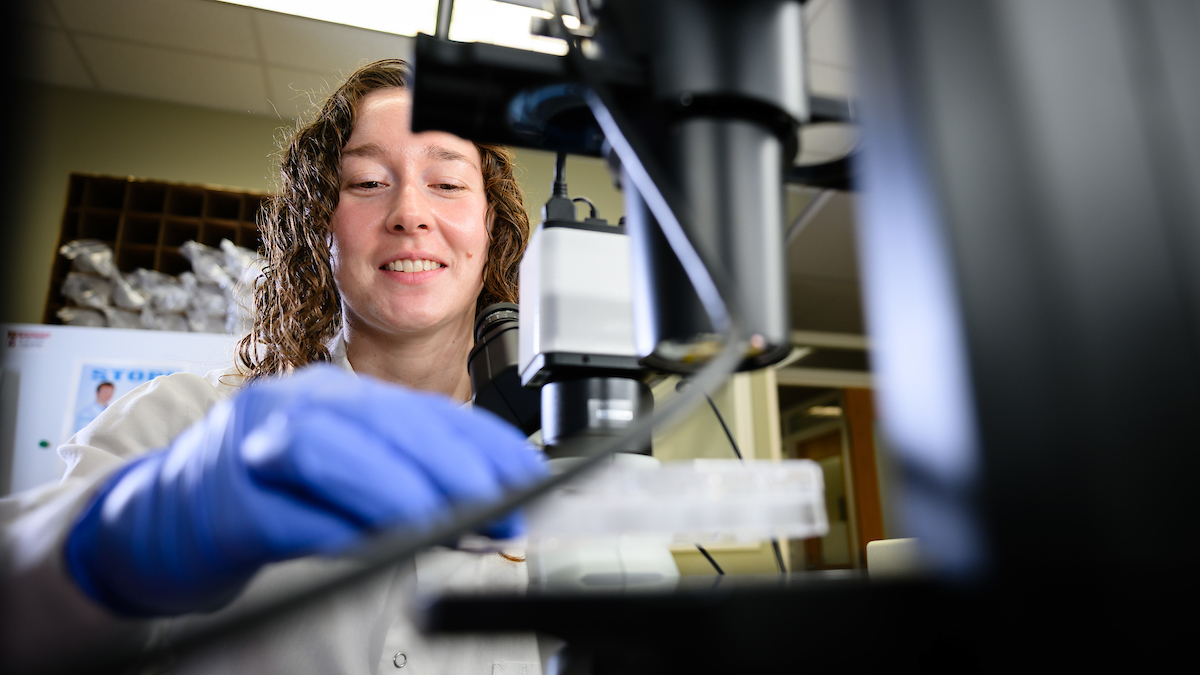Canine Bone Marrow Transplant Provides Hope
The following article was printed in the Dec. 24, 2010 News and Observer of Raleigh, NC.
Potter the terrier mix is 50 pounds of pet-me personality, the sort of canine who plops down when and where he wants to.
"He’s not banned from any beds or couches," said his owner, Al Gibson of Orlando, Fla. When strangers visit, "within five minutes, he’ll be laying on their lap, whether they like it or not."
Potter, named for Harry, the bespectacled kid magician of book and movie fame, has great manners and obeys commands. So when the 4-1/2-year-old dog was diagnosed with cancer, Gibson and his wife were determined to try and save him, even if it meant a $20,000 risk and a bone-marrow transplant.
"He’s part of our family," he said.
Dr. Steven Suter of the N.C. State University College of Veterinary Medicine is scheduled to perform the surgery Feb. 2 in Raleigh. Suter started the canine bone marrow transplant program about two years ago with machines donated by the Mayo Clinic.
Since then, 36 lymphoma-afflicted dogs have gone through the procedure. The survival rate for dogs that undergo traditional chemotherapy treatments for lymphoma is less than 2 percent.
That figure "is simply not palpable to many people. They’re looking for alternatives," Suter said. "When you have a 4-year-old dog that’s going to die soon, it’s pretty sad."
Although some dogs relapse within months of the surgery, 60 percent of dogs that have left the hospital have survived so far. The longest surviving N.C. State dog had the surgery 22 months ago. There haven’t been enough transplants or enough time to pinpoint a cure rate, Suter said.
Although N.C. State was the first vet school in the nation to provide the transplants in a clinical setting, dogs have undergone bone marrow transplants for decades. If not for canine research, human bone marrow transplants would not be as commonplace as they are today.
"The dog has been the transplant model for close to 35 years," Suter said.
But for all the sacrifice canines have made in the name of bone marrow science, pet owners have seen little reward. Suter figured there would be a market for those willing to give it a try.
"It’s been really, really busy," he said. "We’ve been booked solid since we opened."
In the painless procedure, Suter uses a machine designed for humans to harvest cancer-free stem cells from the sick dog’s blood. The next day, the dog undergoes intensive radiation to kill the cancer cells before the stem cells are reintroduced to the body. The dogs are in the hospital for a couple of weeks.
Gibson and his wife, Rebecca, are planning for Potter’s medical care to cost about $20,000, including pre-surgery treatments and travel costs. Working with a website that raises money to help pay for canine cancer treatments, they have set up a fund to collect money to help with the cost.
Gibson, 30, a lawyer, figures about 10 percent of what they need will be donated. "We’re just going to put the rest together," he said.
Potter, who received his diagnosis in October, seemed healthy one day and was stricken with terribly swollen lymph nodes the next. Doing nothing was never an option.
Gibson realizes that some people will not understand the couple’s financial dedication to their dog. If Potter were older, they might make a different decision.
But with a successful transplant, he said, "we could have Potter for another 10 years."


